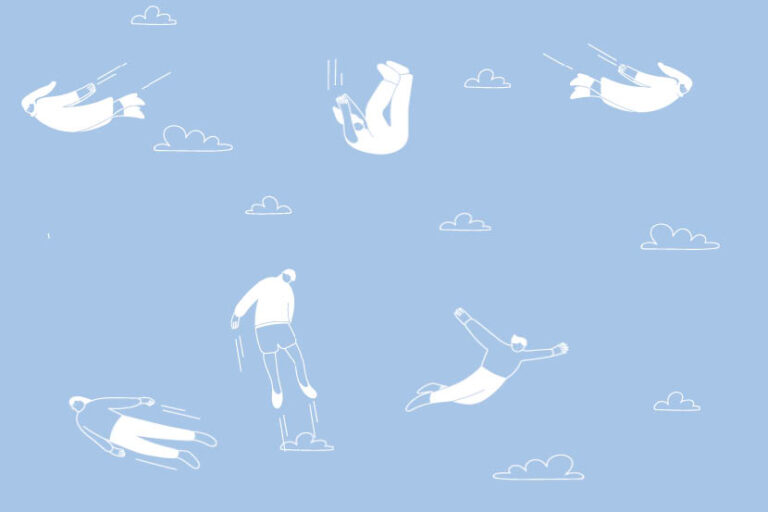
One tiny tweak to your daily habits can lead to big changes down the line
Most people know the term ‘domino effect’ – in literal terms, it brings to mind the game of dominoes, in which tiny bricks are lined up, and each standing domino represents a small amount of potential energy: the more you line up, the more potential energy you’ve accumulated. With a simple flick you can start a chain reaction of surprising power. In fact, to prove this, a team in the Netherlands coordinated the world record domino fall in 2009 by lining up around 4,500,000 dominoes and setting a single domino in motion to unleash 94,000 joules of energy – the equivalent of an average-sized man doing 545 push-ups.
The domino effect has been defined as ‘the situation in which something, usually something bad, happens, causing other similar events to happen’. In recent years, however, it has been given a more positive spin, as a dimension of goal setting: one tiny tweak to daily habits or thought patterns can lead to a much bigger change for the better in the long run.
One person who has studied the domino effect is James Clear. In his book Atomic Habits: Tiny Changes, Remarkable Results he writes: ‘The domino effect states that when you make a change to one behaviour, it will activate a chain reaction and cause a shift in related behaviours.’
Clear cites a 2012 study at Northwestern University in the US that found when people decreased their sedentary leisure time each day, they also reduced their daily fat intake. They were never told to eat less fat, but their nutritional habits improved because they spent less time on the couch watching TV and eating mindlessly. One habit led to another; one domino knocked down the next.
It’s easy to be talked into the idea that only big changes are truly worthwhile. But instead of putting pressure on yourself to make sizeable shifts, whether it’s in relation to our work, health or relationships, the domino effect suggests that small is beautiful, and that sticking with tiny adjustments for the long haul will bring big results. Small lifestyle changes can be more meaningful, the theory goes, because they are easier to achieve and maintain. And when they do lead to success, they’re more likely to become habits and lead to increased self-confidence.
Success is sequential, not simultaneous – one thing leads to another.
The domino effect leans heavily on core principles of human behaviour: commitment and consistency. That is, if people commit to an idea or goal, even in a small way, they’re more likely to honour it because they now see that idea or goal as being aligned with their self-image.
The principle works because extraordinary success is sequential, not simultaneous – one thing leads to another. When you meet someone who has a lot of knowledge, they learned it over time. The same goes for someone who is highly skilled. Success is mostly built one step at a time. It follows that you should prioritise and put your energy into accomplishing what matters to you most. The challenge lies in working that out for yourself, because life doesn’t say: ‘This is where you should start.’
It’s up to you to look at key areas of your own life – be it your health, wealth or relationships – and decide whether you feel one or more could be improved by applying the domino effect to them. In figuring out how to apply this smart approach towards success building, the following tips might help.
- Start with a small behaviour change, one you want to address. If it’s bringing order into your home, you could start by making the bed and tidying up clothes before leaving for work. If your dream is to write a bestseller, start with writing one page per day. Leave your notebook and pen out in full view as a visual prompt. The text will, in time, build to the 50,000 to 80,000 words of a first draft.
- Keep your focus positive and bear in mind it’s all about the choices you have decided to make – establishing where you build your dominoes and where you knock them down is up to you and you alone. And dominoes can always be moved; they’re not set in stone.
- Keep going, and steadily move on to the next task you are motivated to finish. The satisfaction of finishing one task can carry you directly into the next behaviour. With each repetition of the task, you will become more committed to the new you.
- If you stall in your efforts, or feel overwhelmed, try breaking down tasks into smaller chunks. As your new habits are established, focus on keeping them small and manageable. Like mindfulness, the domino effect is about the process more than the final result.


















